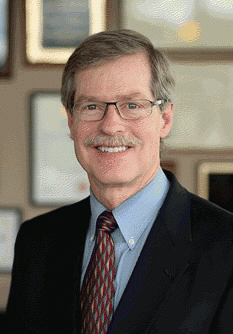According to senior author Geraldo Lorenzi Filho, MD, PhD, of the Sleep Laboratory in the Pulmonary Division, Heart Institute (InCor) at the University of Sao Paulo Medical School, the results showed a 40% reduction of apnea severity and symptoms. Emphasizing that this treatment approach is only for patients with moderate sleep apnea, and not for severe apnea, he also emphasized the importance of compliance to efficacy.
Explore This Issue
August 2009The exercises must be done for around 30 minutes every day, and therefore adherence to treatment will certainly be a measure limitation, he said.
According to John E. Heffner, MD, Garnjobst Chair at Providence Portland Medical Center and Professor of Medicine at Oregon Health & Science University in Portland, compliance will be a major issue for both patients and the physicians who treat them. If proven effective in other studies, otolaryngologists and other physicians will need to refer these patients to specialists who can teach the exercises and help the patients maintain compliance, he said. Most physicians will not have the time or teaching resources to stimulate patients to enter a successful exercise regimen.
 I would only consider recommending exercises for patients with bothersome snoring who do not require CPAP. I do not believe we have sufficient information yet to indicate benefit for CPAP-dependent patients to justify a prolonged exercise training period.
I would only consider recommending exercises for patients with bothersome snoring who do not require CPAP. I do not believe we have sufficient information yet to indicate benefit for CPAP-dependent patients to justify a prolonged exercise training period.
-John E. Heffner, MD
Acknowledging that exercise is a great option if it works, Dr. Kezirian cautioned that this may not be an option for many of the patients he commonly sees, particularly those who are obese. For these people, obstruction of the airway is caused not only by weak and collapsing muscles, but also by bulk formed by deposits around the tongue and throat. Patient selection is therefore critical when considering patients likely to benefit from exercise, he emphasized.
Dr. Heffner also suggested that this treatment approach should be recommended for only a very select group of patients. I would only consider recommending exercises for patients with bothersome snoring who do not require CPAP, he said. I do not believe we have sufficient information yet to indicate benefit for CPAP-dependent patients to justify a prolonged exercise training period.
For patients who are using CPAP and want to try this treatment approach, he recommended that they remain on CPAP until a polysomonogram confirms improvement in their sleep apnea.
Contact the Editor
ENToday welcomes your feedback about our publication! Contact us using the information below: ENToday@lwwny.com
Leave a Reply